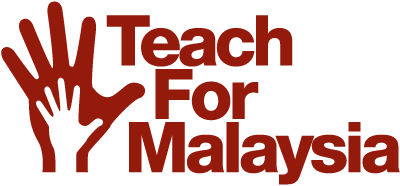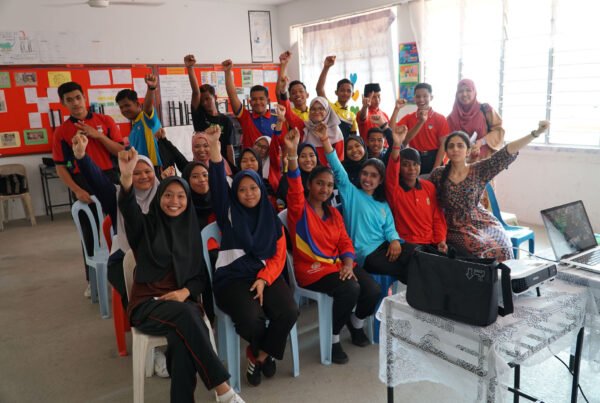[This article is the second in a 3 part series of Teach For Malaysia’s response to SPM for the 2020 Cohort of Form 5 students. Click here to read the first article on whether SPM remains a good proxy to students’ academic capabilities during the pandemic, and issues related to education inequity in Malaysia which continue to be exacerbated by the pandemic.]
Practical steps to be taken immediately to help SPM candidates navigate the challenges they currently face
Here are our recommendations to support the 2020 Cohort of SPM candidates.
- The Ministry of Education and the Lembaga Peperiksaan should provide candidates the option to either sit for the exam in February, or to defer to the next exam period. These options could either be open to all candidates, or only be offered to candidates who have legitimate reasons for being unable to attend the exam, such as personal or family illness.
- The Ministry of Education and the Lembaga Peperiksaan should also provide a “safety net” for the current batch of candidates; so long as the candidates pass the exam, they will not receive a grade lower than that in their trial exam or Form 4 final exam. For example, if Candidate X were awarded a B in their BM trial exam, they will not receive a grade that is lower than B in the upcoming SPM BM exam. The SPM exam will therefore only improve or confirm the grades which the candidates obtained previously.
- Various stakeholders in education should offer support and resources to the candidates and their teachers and parents. For example, circulating free learning resources, providing subsidies to support online learning, and encouraging candidates, teachers and parents to take care of their own wellbeing and to look out for each other. We also encourage the candidates to take ownership of their own learning and support each other by organising and starting online peer learning or revision groups.
- Employers should provide on-the-job training and other forms of learning and development opportunities to the SPM graduates. This is particularly important to SPM graduates who are not continuing their education at higher education institutions.
- Employers should also be more flexible on SPM requirements when assessing candidates from this batch, and look for qualities or capabilities in the candidates which will add value to the organisations.
- Higher education institutions should design and hold entrance exams to specific courses and have more flexible admission criteria for this batch of SPM graduates. This will help lessen the stakes of the SPM exam, and will be particularly helpful for students whose performance in SPM exams would be heavily affected by their personal circumstances.
Holistic education and assessments: some longer-term considerations
The following are some of the strategies we recommend to shift towards a more holistic education and assessment.
- Schools need to remediate learning losses for students regardless of the school year they are in. Assessments can be a useful tool to achieve this objective (as illustrated by UNESCO, UNICEF, and the World Bank). We strongly encourage schools to design and administer diagnostic assessments to inform students of their strengths and weaknesses, and to inform teachers of the effectiveness of their pedagogical strategies and how they might strengthen their approach. This will hopefully help us to provide all students an equitable and inclusive education in the current academic year and in years to come.
- We all need to find ways to support student wellbeing. The volatile, uncertain, complex and ambiguous situation which we are still experiencing has not only affected students’ learning, but also their social and emotional development. With or without an exam, the situation students live currently in is putting a lot of pressure on their social and emotional wellbeing. For some students, school might be the only space which they find safe and supportive, so staying at home for a prolonged period can be very stressful for them. For others, school closure deprives them of regular interaction with their peers, which can weaken their sense of belonging to the school community. It is therefore more important than ever that we adopt a more holistic approach to meet the social and emotional needs of students, in addition to meeting their learning needs.
- Policy makers and educators to reimagine and co-create education and assessments. Some steps that can be taken are:
- Crafting a holistic education that includes social and vocational skills to best prepare students for their career and life. We recommend a shift towards competency-based learning and assessments that take into account 21st century skills. This will help our students stay relevant in the 21st century and enhance their employability. A similar suggestion has been made in a report by Google For Education.
- Creating alternative modes and formats of SPM exams for the 2021 Cohort. This will be relevant should the pandemic persist throughout the rest of 2021. Careful planning is needed to ensure no students are disadvantaged if we adopt an alternative mode and format for the SPM exam.
- Providing autonomy and resources to schools to assess students locally to substitute centralised, standardised exams like SPM. For example, schools may choose to use continuous, ongoing, school-based coursework to assess their students. They could also design a range of project-type assessments, which students can choose from, depending on their intended career pathways.
In the next article in this series, we will share some of the resources which SPM candidates, teachers and parents may find useful.







